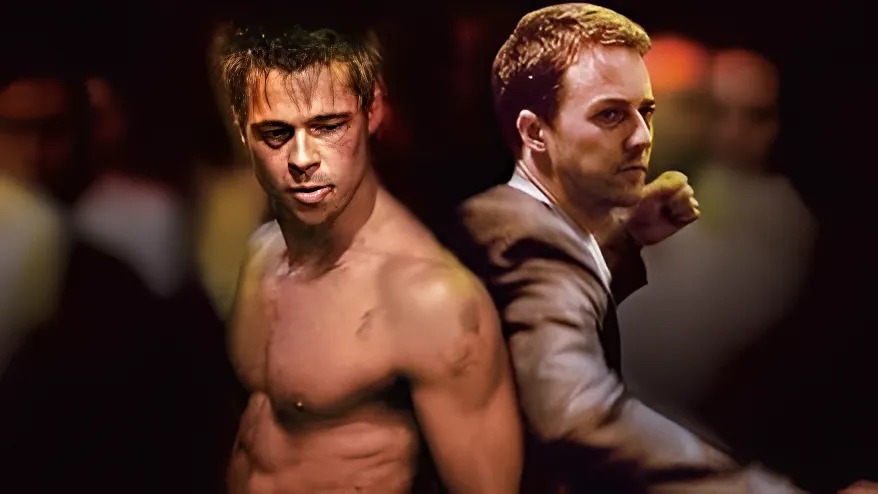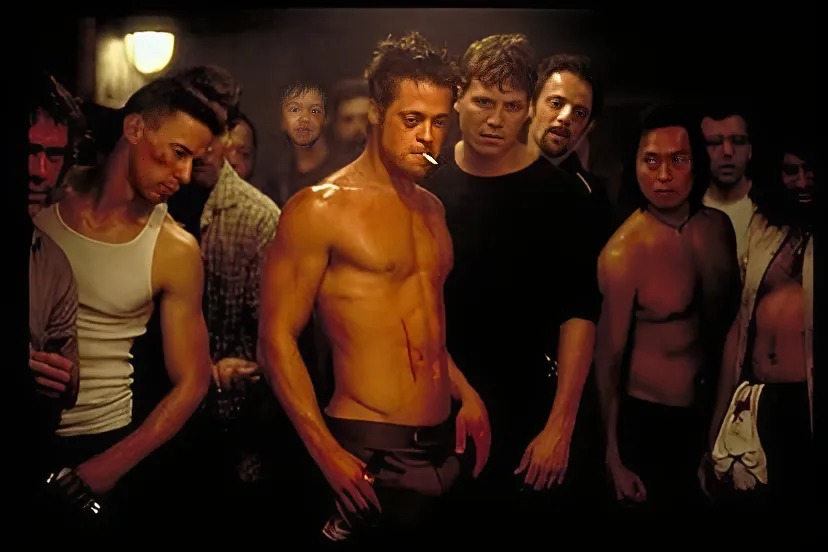Directed by David Fincher and adapted from Chuck Palahniuk’s novel, Fight Club (1999) is a provocative, electrifying thriller that blends dark comedy, psychological depth, and social satire. Starring Brad Pitt, Edward Norton, and Helena Bonham Carter, this cult classic explores identity, consumerism, and rebellion with a visceral punch. Over two decades later, Fight Club remains a bold, endlessly quotable cinematic landmark that challenges and captivates. Step into the ring, but remember the first rule!
The Story: Breaking Free or Breaking Down
Edward Norton plays the Narrator, an insomniac office drone trapped in a soul-crushing, consumerist life. His mundane existence implodes when he meets Tyler Durden (Brad Pitt), a charismatic anarchist who preaches liberation through chaos. Together, they create Fight Club, an underground movement where men brawl to reclaim their masculinity. As the club evolves into the anarchic Project Mayhem, the Narrator’s volatile relationship with Tyler and the enigmatic Marla Singer (Helena Bonham Carter) spirals into a mind-bending battle for control. This 139-minute rollercoaster is a twisted tale of self-destruction and awakening.
The Stars: Pitt’s Magnetism, Norton’s Unraveling
Edward Norton delivers a riveting performance as the Narrator, his everyman fragility and descent into chaos gripping from start to finish. Brad Pitt is electrifying as Tyler Durden, oozing charm, danger, and anarchic cool—his “We’re a generation of men raised by women” speech is iconic. Their yin-yang chemistry drives the film’s pulse. Helena Bonham Carter is magnetic as Marla, her raw, unpredictable energy adding a dark romantic spark. Supporting players like Meat Loaf (as the tragic Robert Paulson) and Jared Leto add depth to the chaotic ensemble. The cast is flawless, embodying the film’s unhinged spirit.
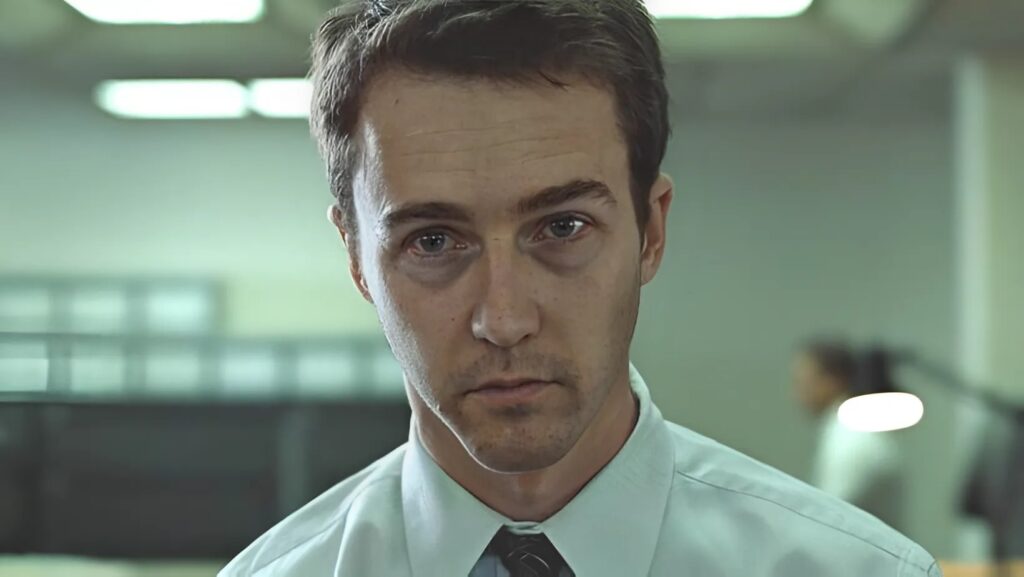
The Craft: Fincher’s Visionary Chaos
Fincher’s direction is a masterclass in controlled anarchy, blending gritty realism with surreal flourishes. Jim Uhls’ script crackles with biting dialogue and Palahniuk’s sardonic voice, while Jeff Cronenweth’s cinematography—murky greens, flickering fluorescents—creates a claustrophobic, anarchic vibe. The Dust Brothers’ pulsating score, paired with tracks like The Pixies’ “Where Is My Mind?”, amplifies the film’s rebellious edge. From subliminal flashes to explosive set pieces, the editing and visual effects are groundbreaking, making every twist visually and emotionally seismic. It’s Fincher at his peak.
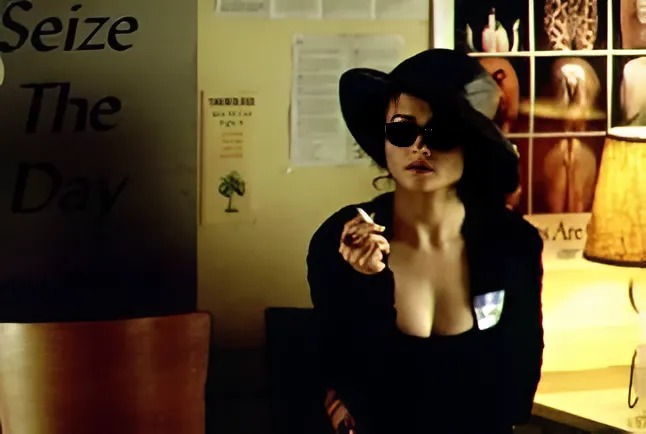
Why It Slaps
Fight Club is a cinematic Molotov cocktail, blending razor-sharp satire, psychological thrills, and raw energy. It skewers consumerism, toxic masculinity, and societal apathy with a wicked grin, while its twist-heavy narrative keeps you guessing. Pitt’s Tyler is a rebel icon, Norton’s unraveling is haunting, and Carter’s Marla is unforgettable. Iconic lines—“The first rule of Fight Club is…”—and scenes like the chemical burn or Project Mayhem’s chaos are etched in pop culture. It’s a film you watch to question everything, quote endlessly, and feel the adrenaline of rebellion, even if it’s messy.
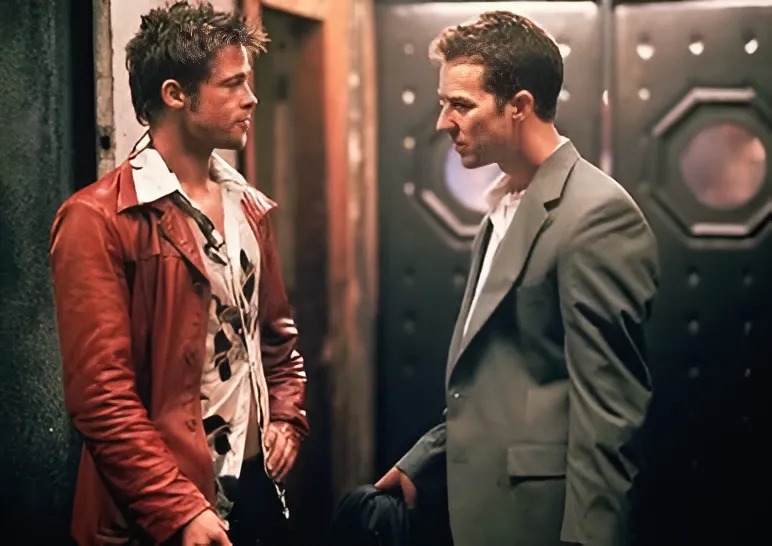
Why It Stumbles
Some criticize Fight Club for glamorizing violence or being misread as a toxic masculinity manifesto, sparking debate about its intent. The second half’s anarchic sprawl can feel chaotic, and Marla’s role, while compelling, occasionally feels like a plot device. For some, the satire may hit too close to discomfort. Yet, these complexities add to its provocative power, rewarding repeat viewings.
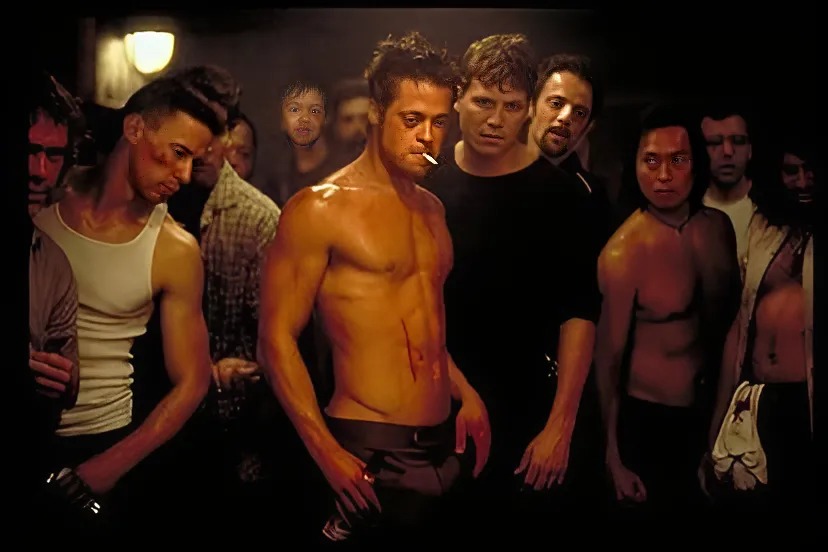
Legacy and Vibe Check
Initially a box office flop, Fight Club became a cultural phenomenon via DVD and cult fandom, shaping ‘90s cinema alongside The Matrix. For American and English-speaking audiences, its anti-corporate ethos and anarchic spirit resonated, influencing films like Inception and TV like Mr. Robot. Its quotes and imagery remain meme gold. Perfect for a late-night watch with friends or a deep dive into its themes, Fight Club is a film that demands discussion.
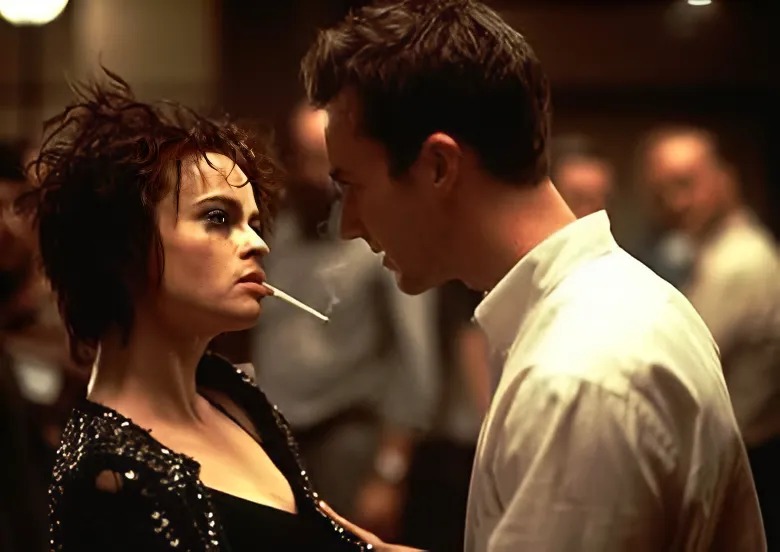
Rating: 5/5 Stars
Fight Club is a bold, brilliant masterpiece that shocks, provokes, and mesmerizes. Fincher, Pitt, and Norton deliver a cinematic rebel yell that’s as explosive today as it was in ’99.
